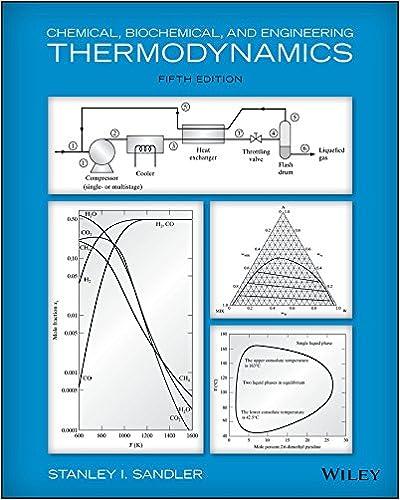In Joules experiments, the slow lowering of a weight (through a pulley and cable arrangement) turned a
Question:
In Joule’s experiments, the slow lowering of a weight (through a pulley and cable arrangement) turned a stirrer in an insulated container of water. As a result of viscosity, the kinetic energy transferred from the stirrer to the water eventually dissipated. In this process the potential energy of the weight was first converted to kinetic energy of the stirrer and the water, and then as a result of viscous forces, the kinetic energy of the water was converted to thermal energy apparent as a rise in temperature. Assuming no friction in the pulleys and no heat losses, how large a temperature rise would be found in 1 kg of water as a result of a 1-kg weight being lowered 1 m?
Step by Step Answer:

Chemical Biochemical And Engineering Thermodynamics
ISBN: 9780470504796
5th Edition
Authors: Stanley I. Sandler





